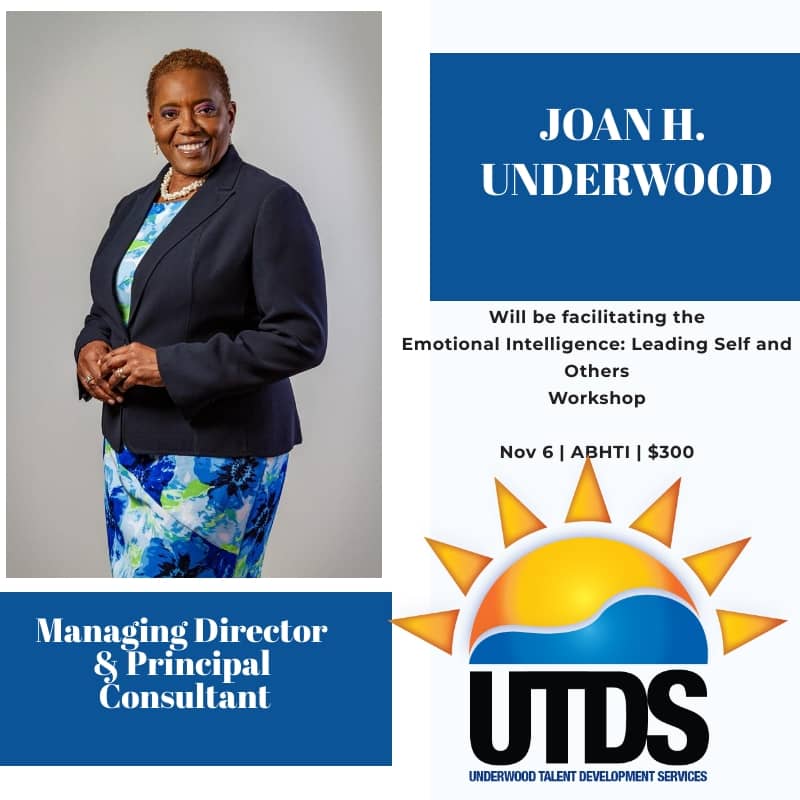
MIND OVER MATTER
Emotional Intelligence in the Workplace
Emotional intelligence (EQ) is the new frontier in leadership. If you ask the average person what the qualities of a good leader are chances are that intelligence will top the list. The trouble with that, is that just like many other abstract concepts; intelligence is hard to define. If you’re one of those persons in the workplace tasked with the responsibility of leading a team how can you really be sure that you have truly mastered the intelligences that it takes to teach, motivate and lead your team to meet organizational mandates?
How Do I Define Intelligence?
According to Robert Sternberg the author of the Triarchic Theory there are three types of intelligences; componential intelligence (how well you test), experiential intelligence (how well you adapt to new stimuli) and contextual intelligence (how well you apply knowledge in real life situations). However, it was Daniel Goleman who is known for popularizing the concept and importance of emotional intelligence, which is defined as competency in recognizing, understanding and regulating our own emotions and influencing those of others.
Why Is Emotional Intelligence Important in my Workplace?
The contemporary West is well known for our value of left brained thinking, componential, experiential and contextual intelligences. As we should, possession of these intelligences allows leaders to interpret hard data, devise plans and turn them into successes. However, the ‘softer’ emotional intelligence is not to be overlooked. EQ is a key indicator of human performance and developmental potential. It is the single best predictor of performance in the workplace and the strongest driver of leadership and personal excellence.” That was one of the conclusions published in a 2013 ASTD blog.
Why Do I as a Leader Need to Develop Emotional Intelligence?
EQ is one of the most valid and reliable predictors of leadership success, and unlike intelligence quotient (IQ) leaders can actually grow their EQ! As a leader you set the tone for your corporate culture. According to the 2017 Gallup State of the Global Workplace Report, 85% of employees worldwide are not engaged or are actively disengaged in their job. The same report also found that managers account for at least 70% of the variance in employee engagement scores. Given that employee engagement is directly proportional to productivity, clearly workplace leaders have some work to do!
Technical competency does not translate into people management skills. If you cannot master your own emotions and learn how to positively influence those of your team, then your team’s cohesion and productivity will be severely diminished.
Employees thrive in environments where they feel empowered to produce, respected, valued, and where they are well compensated. As a leader it is your responsibility to produce such an environment. Leaders who lack emotional intelligence are more likely to create toxic work environments and experience high employee attrition rates. A strong balance of EQ and IQ is in a leader’s best interests. In their 2014 publication on leadership styles Drs. Nanjundeswaraswamy and Swamy posited that in competitive environments effective leadership styles are necessary to reduce attrition.
What Can I Do to Become a More Emotionally Intelligent Leader?
Sign up for Underwood Talent Development Service’s People Management workshop on November 6th at the Antigua and Barbuda Hospitality Training Institute. At the end of the workshop you will be able to utilize enhanced emotional intelligence to achieve higher levels of self-awareness and self-regulation as well as use emotional intelligence to stimulate self and others to excellence.
You can also register for a one-hour coaching session, and an in-depth personal emotional intelligence assessment. Underwood Talent Development Service’s Managing Director is certified to administer the EQ-i 2.0 which has been described as one of the best scientifically validated assessment instruments on the market.
Registration is ongoing via the TickeTing app at the cost of $300 for the workshop, and $600 for the workshop, coaching and a personalized emotional intelligence assessment.
Advertise with the mоѕt vіѕіtеd nеwѕ ѕіtе іn Antigua!
We offer fully customizable and flexible digital marketing packages.
Contact us at [email protected]

















why was my comment not posted.
Mine was not posted either. Wonder why?
lol now I am curious as to what you two posted
Did the presenter have all this information when she worked at ABIB?
The staff went through emotional trauma under her intelligence….
We will not forget what you put us through….let’s see if this is posted censorship who speaks about free speech?
And now she wants the same people to shell out their monies in order to fatten up her bank account.
Lucky you. I still cannot understand why my comments were not posted. But you make a good point. Joan is not and has never been a friendly person to work with.
But emotional intelligence is a very old concept in management. There are many books written about that.
One day the HR department of Stanford had a seminar about that and all the company managers attended the meeting. And Alan was not aware of that and he was calling the various company mangers and got no reply. When he learned what was going on he called in the session and told everyone to get the hell to work and start running their company the way he has instructed. Which was pay people for their performance. The more you perform the more you get paid. And guess what that made everyone a high achiever. Cause money motivate everyone. We saw that with the 20/20 cricket games. If you know you get $25K for hitting a 6. You will go for it. If you know you get a million dollar for winning a game, you will play to win.
Comments are closed.